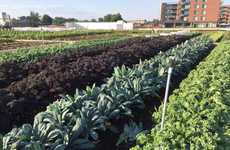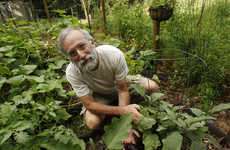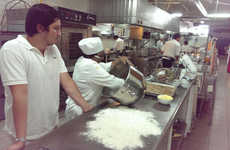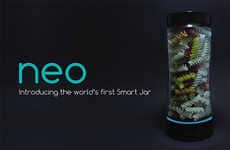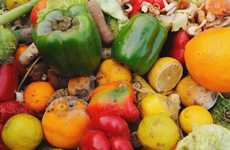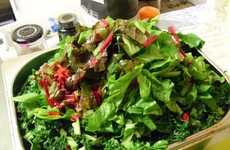



Consumer demand to eliminate food spoilage prompts waste minimization apps
Implications - Brands are developing systems that minimize environmental devastation through digital features. This is especially attractive to the millennial shopper who is tech-savvy and interested in green living due to heightened exposure to ecological information via the Internet. Moreover, by incorporating technology, new conservationist concepts are also of mass appeal to young demographics with a preference for handheld convenience.
Workshop Question - How could your brand integrate technology in order to be more eco-friendly?
Trend Themes
1. Food Conservation Apps - With food waste becoming an increasingly important issue, the development of food conservation apps is addressing the problem by educating users on proper food storage and reminding them when items are about to expire. This presents a disruptive innovation opportunity for developers to create new solutions and features that allow users to conserve food and reduce waste.
2. Surplus Food Donation Apps - Surplus food donation apps are streamlining the process of connecting grocery retailers, producers and suppliers with local non-profit organizations that can accept their donations of surplus food, reducing waste and helping to address urban hunger. This trend presents an opportunity for app developers to create more efficient and integrated platforms, and for retailers to find new ways to give back to their communities.
3. Sustainable Digital Micro-grocers - Farm-to-fridge grocery delivery services with AI systems that learn and predict ordering habits, as well as eco-friendly micro-warehouses and delivery routes, are revolutionizing the grocery industry. This presents an opportunity for disruptive innovation in logistics and supply chain management, as well as the creation of new services and technologies that make grocery shopping more sustainable and convenient.
Industry Implications
1. Food and Grocery - Food conservation and surplus food donation apps, as well as sustainable micro-grocers, are trends that directly impact the food and grocery industry by reducing waste and addressing urban hunger. This presents a disruptive innovation opportunity for industry leaders to implement new solutions and technologies that improve efficiency and reduce environmental impact.
2. Technology - The development of food conservation, surplus food donation, and sustainable micro-grocer apps incorporates technology in innovative ways to address issues such as waste and sustainability. This presents an opportunity for tech companies to create new and better tools to make a positive impact on the food industry.
3. Non-profit and Social Impact - Surplus food donation apps and food conservation initiatives are targeted towards non-profit organizations and social impact missions, making this a trend that presents an opportunity for these groups to adopt new technologies and platforms that streamline their efforts and make them more efficient and effective.







